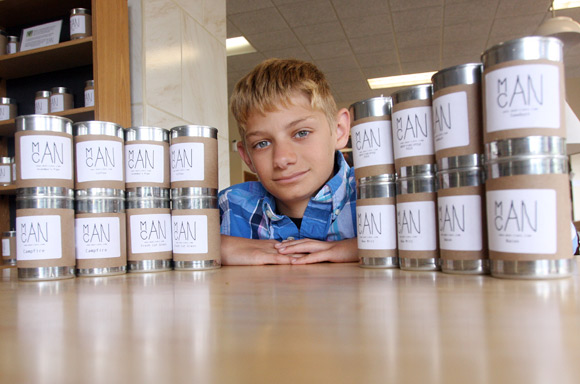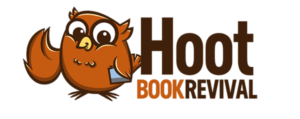Ben Silbermann and Evan Sharp, co-founders of Pinterest, both used their prior experiences in the technology and the internet to start a very successful business of their own. Silbermann was a Google employee until he left to design apps on his own. However, these failed to gain any traction, until eventually he designed a product inspired by his own love of collecting things.
Similarly, Sharp worked at Facebook as a product designer. He met Silbermann in New York, and then joined his team to make Pinterest a reality.
Pinterest is really about idea sharing. People enjoy telling others about their ideas, and Pinterest gives them a platform to not only do so but also to gauge how a community will respond to it. It is a great place to see other peoples ideas as well, and find inspiration for many different things.
This business idea is a great example of collision in a liquid network. In the realm of technology and the internet, two men with the experience and ideas necessary collided to make a business that could possibly eclipse Facebook and other social media giants.
Without one another, the idea would just be a pair of hunches, and nothing would have come from it. However, in a community where ideas can bounce around, change, and grow, true innovations can be born.


 Warby Parker has reimagined the eyewear industry as the first company to introduce affordable eyewear that can be purchased online. The company offers prescription eyeglasses for a flat $95 and has a number of stylish options. Customers can order a number of different eyeglasses, try them on at home, and return the pairs that they do not want. The idea started with a simple question. Why are glasses not sold online? Founder, Neil Blumenthal asked that question so he recruited three friends and Warby Parker was born. However, the company ran into problems early on. Forty-eight hours after the website had launched, it had to be taken down because they received so many orders. The website did not indicate when a product sold out which led to a 20,000 person wait list. Eventually, they sorted out their website issues and are currently making waves in the industry.
Warby Parker has reimagined the eyewear industry as the first company to introduce affordable eyewear that can be purchased online. The company offers prescription eyeglasses for a flat $95 and has a number of stylish options. Customers can order a number of different eyeglasses, try them on at home, and return the pairs that they do not want. The idea started with a simple question. Why are glasses not sold online? Founder, Neil Blumenthal asked that question so he recruited three friends and Warby Parker was born. However, the company ran into problems early on. Forty-eight hours after the website had launched, it had to be taken down because they received so many orders. The website did not indicate when a product sold out which led to a 20,000 person wait list. Eventually, they sorted out their website issues and are currently making waves in the industry.

 experience, Ross decided to make a more streamlined browser, and the Mozilla Project was born. The first software in the suite and in many ways the flagship development, Firefox, was immensely popular, and became the first real competitor to Internet Explorer. Other popular software developed by Ross include Thunderbird, the mail program in the Mozilla suite, and Parakey, a separate program that he sold to Facebook for a large profit.
experience, Ross decided to make a more streamlined browser, and the Mozilla Project was born. The first software in the suite and in many ways the flagship development, Firefox, was immensely popular, and became the first real competitor to Internet Explorer. Other popular software developed by Ross include Thunderbird, the mail program in the Mozilla suite, and Parakey, a separate program that he sold to Facebook for a large profit. As a homeschooler, Natalie and her family had to buy all of their books themselves, and as there was no curated or organized way to buy used book, they usually ended up buying these books new from publishers, which got very expensive. However, Natalie noticed that after he finished with a book, it just stayed on her bookshelf until it either was given away to a family friend or sold at a significantly reduced price at a yard sale. Natalie considered how wasteful this was, both on the buying end and the reselling end because there was no organized platform for homeschoolers to interact with each other in this manner. Out of this pain came her idea of Hoot Book Revival, which is an app and website on which homeschoolers can resell their books and buy used books from other homeschooling families at a reduced cost. This benefits both the buyer and the seller, because people looking to buy books can get them much cheaper than they can new books, and people looking to sell books can sell them for more than they could at a yard sale.
As a homeschooler, Natalie and her family had to buy all of their books themselves, and as there was no curated or organized way to buy used book, they usually ended up buying these books new from publishers, which got very expensive. However, Natalie noticed that after he finished with a book, it just stayed on her bookshelf until it either was given away to a family friend or sold at a significantly reduced price at a yard sale. Natalie considered how wasteful this was, both on the buying end and the reselling end because there was no organized platform for homeschoolers to interact with each other in this manner. Out of this pain came her idea of Hoot Book Revival, which is an app and website on which homeschoolers can resell their books and buy used books from other homeschooling families at a reduced cost. This benefits both the buyer and the seller, because people looking to buy books can get them much cheaper than they can new books, and people looking to sell books can sell them for more than they could at a yard sale. When I asked Natalie about how this business came about and what need it was filling, she said, “I suppose the core of the business idea was identifying an underrepresented group, and how their market needs weren’t being addressed, because the business pitch itself is pretty simple.” Natalie’s website allows the customer to buy and sell books, as well as collaborate with other homeschoolers on which lesson plans and books are best. Hoot Book Revival also has an option where people can post their books and let Hoot do all the work in finding people to sell them to, making the customer experience more enjoyable and less labor intensive.
When I asked Natalie about how this business came about and what need it was filling, she said, “I suppose the core of the business idea was identifying an underrepresented group, and how their market needs weren’t being addressed, because the business pitch itself is pretty simple.” Natalie’s website allows the customer to buy and sell books, as well as collaborate with other homeschoolers on which lesson plans and books are best. Hoot Book Revival also has an option where people can post their books and let Hoot do all the work in finding people to sell them to, making the customer experience more enjoyable and less labor intensive.